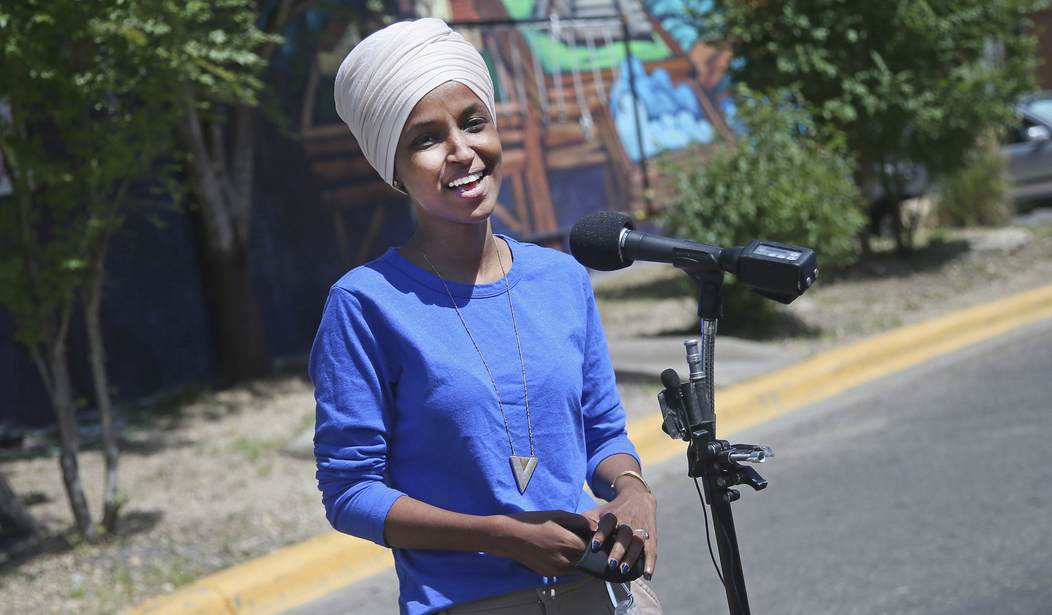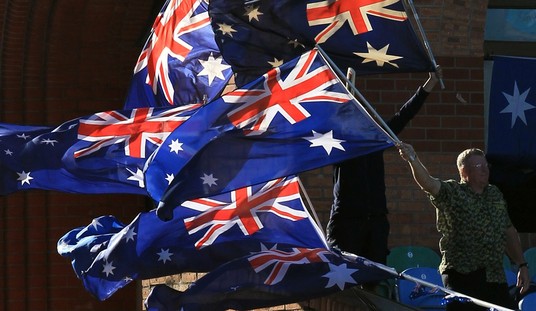Rep. Ilhan Omar says that the controversy about teaching critical race theory is ridiculous because no school in America is teaching it.
Republicans love to create outrage over things that aren’t actually happening. People should be asking them, what elementary, middle and high school is teaching Critical Race Theory and why they are spinning false narratives.
— Ilhan Omar (@IlhanMN) June 19, 2021
Technically, she is absolutely correct. Critical race theory is an academic discipline and is not part of the curriculum at any public elementary, middle, or high school in America. We know this because no school district lists it as part of its curriculum for any grade level.
But that’s extraordinarily misleading. Conclusions reached by academics about race in America have been informed by critical race theory and those conclusions are part of the curriculum found in many schools across the country. Just because it isn’t called “critical race theory” doesn’t mean anything if the poison enters the bloodstream anyway.
You probably know that CRT looks at historical events through a prism of race and oppression. It is one perspective on history. It can be discussed, debated, argued, challenged, and dismissed because it is just one perspective. There are other historical perspectives that look at history through the lens of class (Marxism) or patriotism. Teaching as many perspectives as possible so students can compare and contrast and decide for themselves what might be a valid interpretation of past events is desirable — even necessary — for a well-rounded outlook on history.
Related: The Totalitarian Threat of Critical Race Theory Rears Its Ugly Head
But that isn’t possible. Opposing the teaching of critical race theory has become a litmus test for white people to determine if you deny that slavery happened or think that Jim Crow didn’t occur. To activists, there is only one perspective on history and if you don’t agree with it, you’re a racist.
“Taking historical perspective means understanding the social, cultural, intellectual, and emotional settings that shaped people’s lives and actions in the past.” Did they see events only through a prism of race? I imagine slaves had a different perspective than slaveowners, as did women, Native Americans, and others who history tells us were disadvantaged or oppressed in some way. What we see as “history,” they saw as “life.” That too is a different perspective that CRT fails to include in its criticisms.
Supporters of the education-based movement believe there needs to be a larger discussion surrounding how racism is a social construct, rather than a result of individual bias, embedded in social policies and laws.
But opponents of critical race theory believe its core concept does not merely show how historical policies have perpetuated “race-blind” practices, but in fact, creates further division amongst races.
The danger in banning the teaching of CRT is that the concept is so ill-defined in popular culture that teaching anything about slavery, or the history of lynchings, or Jim Crow suppression could easily be mistaken as teaching critical race theory. I don’t think most parents want that, although the attendant intellectual baggage of making children feel ashamed or bad about themselves has to be avoided. Kids shouldn’t be taught to feel shame for the sins of adults who lived 170 years ago.
Ideally, the teaching of history should be absent of politics. But that’s not possible. We shouldn’t handcuff teachers by trying to micromanage their lesson plans not to include this, or to include that. Trust your children with the facts. They will make their own decisions on which facts are important, and which are not.









Join the conversation as a VIP Member